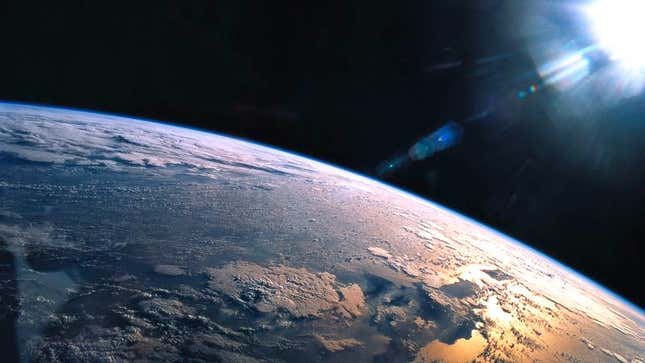
EARTH—Noting that the species’ tenure in the leadership role has been marked by an incompetence and shortsightedness that has caused irreparable damage, sources reported Thursday that humans are facing increased calls to give up their position as head of the world’s failing ecosystem.
The critics clamoring for Homo sapiens to step down argue that as leader of the earth’s environment they have been responsible for one disaster after another, while over the past several decades the global ecological organization has essentially stopped functioning due to humanity’s gross mismanagement.
“Since taking control of the ecosystem, human beings have misallocated its resources and left many of its operations teetering on the brink of collapse,” said Tracy Eldridge, a spokesperson for organisms demanding a change in leadership, noting that humans have overseen massive cuts in species around the world and that thousands more are expected to be eliminated within the next year alone. “Such wastefulness has threatened the long-term viability of the planet’s habitat, but humans appear unable to formulate an actionable plan to keep it running smoothly.”
“If they stay in charge and continue making all the major strategic decisions for this ecosystem, I don’t see how it can last more than another few years,” she added.
According to public records, humans have failed to implement quality control procedures for their water supply or meet annual targets for carbon reduction, and it was under their stewardship that the earth broke its impressive string of 180 million consecutive quarters of gains in biodiversity. Eldridge stated that ecosystem stakeholders have given humanity plenty of time to overcome early missteps like deforestation, but it has repeatedly failed to recognize its strategic mistakes and find ways to maintain a functioning environment.
Other species have observed that before humans took over, the global ecosystem had been a model organization, with complex groups of highly successful biomes working together productively. However, after Homo sapiens assumed control, the ecosystem reportedly saw a decline in its overall capacity to host life that has only accelerated in recent decades, as multiple habitat divisions have faltered and nearly gone under.
“Our traditional generators of biodiversity—rainforests, wetlands, coral reefs—have been scaled back dramatically by humans and have seen their productivity plummet as a result,” said Eldridge, who added that critical ecological initiatives such as pollination have also seen steep declines in their output. “The world habitat had been running a huge surplus on fresh water and ozone before humans, but after years of neglect and little to no investment from management, those strategic assets are severely depleted.”
She continued, “The way things look right now, they might have to shut down the Arctic division completely.”
Sources confirmed that species retention has fallen to an all-time low under humanity’s tenure, with many long-serving members of the ecosystem like the Western black rhinoceros, the auroch, the Caspian tiger, and the passenger pigeon leaving the planet completely.
Those calling for removing humanity from its post claim the earth has far more qualified leaders currently waiting in the wings, species that are more favorably regarded throughout the ecosystem, have shown they can cooperate with other organisms, and have a proven track record of success dating back tens of millions of years.
“There is a large contingent within the biosphere that would love to see ants take over after humans step down,” said Eldridge, who cited the insects’ tireless work ethic, longer tenure on the planet, and ability to work well in groups. “It has become very clear that humans will always place their own personal gain above the interests of their subordinate species and that they have little or no interest in the long-term prospects of their ecosystem.”
“Every day the humans remain in charge, we are one day closer to the environment becoming a completely failed enterprise,” she continued.
Eldridge added that if human beings do not voluntarily step down as head of the ecosystem, the environment might have to take drastic action to remove them forcibly.